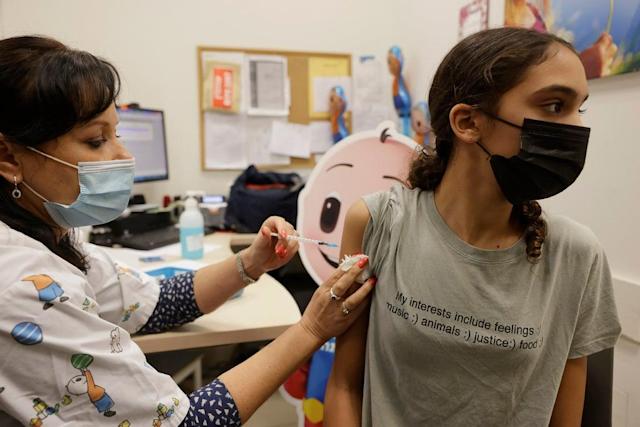 |
| Image Credit(AP) |
It sounds more like science fiction the more you hear it: The first case of Flurona, a new and rare double infection of coronavirus and influenza, was discovered in an unvaccinated pregnant Israeli young woman, according to doctors at Beilinson Hospital in the city from Petach Tikva out of the country.
From symptoms to look out for to how likely they are to spread, this is what we knew about Flurona so far.
How did flurona come about?
As the name suggests, flurona describes a rare double infection of both coronavirus and influenza. The term has emerged over recent days following the finding of a patient in Israel who tested positive for both diseases when she came into hospital on Thursday - the first recorded case in the world.
The young woman is pregnant and is reported to only have mild symptoms, but health officials have quickly started studying her case to determine whether the combination causes any greater severity of illness.
“She was diagnosed with the flu and coronavirus as soon as she arrived,” Professor Arnon Vizhnitser, director of the hospitals’ Gynaecology Department, told Jewish newspaper Hamodia.
“Both tests came back positive, even after we checked again. The disease is the same disease. They’re viral and cause difficulty breathing since both attack the upper respiratory tract.”
According to latest reports, the patient is expected to be discharged on Thursday.
What are the symptoms?
It is difficult for scientists to pinpoint an exact set of symptoms, but flurona’s most common effects are likely to be a combination of those of Covid and influenza.
The Israeli patient did reportedly exhibit breathing difficulties and since Omicron already exhibits many of the same symptoms as the flu or a cold, the main effects are likely to include a high temperature, fatigue, aches, sneezing, a dry cough and/or scratchy throat.
Prof Vizhnitser confirmed that both infections are viral and cause difficulty breathing. “The disease is the same disease,” he said. “They’re viral and cause difficulty breathing since both attack the upper respiratory tract.”
How likely is it to spread?
Much about the infectiousness and seriousness of flurona remains unknown, but doctors have confirmed that other cases are likely to emerge - a result of rising flu cases as restrictions ease along with the fast spread of the Omicron variant.
Related: First Case Of Flurona Emerges in France
“We are seeing more and more pregnant women with the flu,” said Prof Vizhnitser. “It is definitely a great challenge dealing with a woman who comes in with a fever at childbirth.
“This is especially when you do not know if it’s coronavirus or the flu, so you refer to them the same. Most of the illness is respiratory.”
Source: Yahoo News
from TechCrunch https://ift.tt/3zvm8J1








0 comments:
Post a Comment